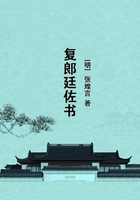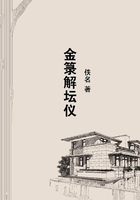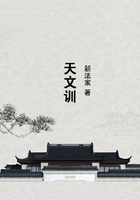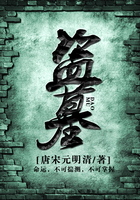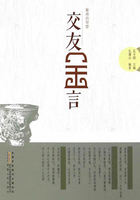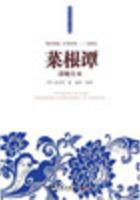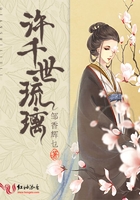I have often been asked how I began the practice of public speaking. In answer I would say that I never planned to give any large part of my life to speaking in public. I have always had more of an ambition to DO things than merely to talk ABOUT doing them. It seems that when I went North with General Armstrong to speak at the series of public meetings to which I have referred, the President of the National Educational Association, the Hon.
Thomas W. Bicknell, was present at one of those meetings and heard me speak. A few days afterward he sent me an invitation to deliver an address at the next meeting of the Educational Association. This meeting was to be held in Madison, Wis. I accepted the invitation. This was, in a sense, the beginning of my public-speaking career.
On the evening that I spoke before the Association there must have been not far from four thousand persons present. Without my knowing it, there were a large number of people present from Alabama, and some from the town of Tuskegee. These white people afterward frankly told me that they went to this meeting expecting to hear the South roundly abused, but were pleasantly surprised to find that there was no word of abuse in my address.
On the contrary, the South was given credit for all the praiseworthy things that it had done. A white lady who was teacher in a college in Tuskegee wrote back to the local paper that she was gratified, as well as surprised, to note the credit which I gave the white people of Tuskegee for their help in getting the school started. This address at Madison was the first that I had delivered that in any large measure dealt with the general problem of the races. Those who heard it seemed to be pleased with what I said and with the general position that I took.
When I first came to Tuskegee, I determined that I would make it my home, that I would take as much pride in the right actions of the people of the town as any white man could do, and that I would, at the same time, deplore the wrong-doing of the people as much as any white man. I determined never to say anything in a public address in the North that I would not be willing to say in the South. I early learned that it is a hard matter to convert an individual by abusing him, and that this is more often accomplished by giving credit for all the praiseworthy actions performed than by calling attention alone to all the evil done.
While pursuing this policy I have not failed, at the proper time and in the proper manner, to call attention, in no uncertain terms, to the wrongs which any part of the South has been guilty of. I have found that there is a large element in the South that is quick to respond to straightforward, honest criticism of any wrong policy. As a rule, the place to criticise the South, when criticism is necessary, is in the South--not in Boston. A Boston man who came to Alabama to criticise Boston would not effect so much good, I think, as one who had his word of criticism to say in Boston.
In this address at Madison I took the ground that the policy to be pursued with references to the races was, by every honourable means, to bring them together and to encourage the cultivation of friendly relations, instead of doing that which would embitter. I further contended that, in relation to his vote, the Negro should more and more consider the interests of the community in which he lived, rather than seek alone to please some one who lived a thousand miles away from him and from his interests.
In this address I said that the whole future of the Negro rested largely upon the question as to whether or not he should make himself, through his skill, intelligence, and character, of such undeniable value to the community in which he lived that the community could not dispense with his presence. I said that any individual who learned to do something better than anybody else--learned to do a common thing in an uncommon manner--had solved his problem, regardless of the colour of his skin, and that in proportion as the Negro learned to produce what other people wanted and must have, in the same proportion would he be respected.
I spoke of an instance where one of our graduates had produced two hundred and sixty-six bushels of sweet potatoes from an acre of ground, in a community where the average production had been only forty-nine bushels to the acre. He had been able to do this by reason of his knowledge of the chemistry of the soil and by his knowledge of improved methods of agriculture. The white farmers in the neighbourhood respected him, and came to him for ideas regarding the raising of sweet potatoes. These white farmers honoured and respected him because he, by his skill and knowledge, had added something to the wealth and the comfort of the community in which he lived. I explained that my theory of education for the Negro would not, for example, confine him for all time to farm life--to the production of the best and the most sweet potatoes--but that, if he succeeded in this line of industry, he could lay the foundations upon which his children and grand-children could grow to higher and more important things in life.
Such, in brief, were some of the views I advocated in this first address dealing with the broad question of the relations of the two races, and since that time I have not found any reason for changing my views on any important point.
In my early life I used to cherish a feeling of ill will toward any one who spoke in bitter terms against the Negro, or who advocated measures that tended to oppress the black man or take from him opportunities for growth in the most complete manner.


